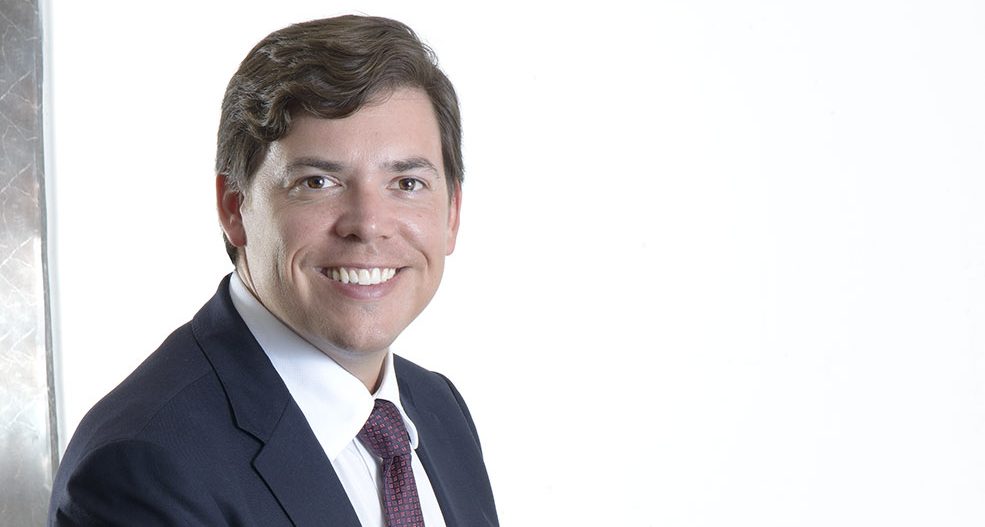
INTERVIEW WITH LEONARD JENSEN, ATTORNEY FROM FORTALEZA
What does the real estate investment market in Ceara look like today?
The real estate market in Ceará is in constant evolution, mainly in the tourist centers of the state, like Jericoacoara, Icairaizinho, Pontal do Maceió and several other regions. The market growth is due to the natural beauties, structures to receive visitors and large investments that the state has received in recent years, such as the construction of Jericoacoara airport and the start of operations of the Air France/KLM and Gol hub, which significantly helped increase tourist numbers. Such a scenario helps boost the real estate market, mainly related to large investments.
Are there any new high scale investments to take place soon in this part of Brazil?
According to the data released by IBGE, Ceará recorded the best figures of tourism activities in Brazil in the last year. This shows that Ceará is in great exposure and it is only natural that the state attracts more and more investments. As major investments, we can mention the expansion of the Beach Park complex in Porto da Dunas Beach (investment of around BRL 1.6 billion), the construction of the Hard Rock Hotel & Resort complex at the Lagoinha Beach (investment of around BRL 330 million) and the expansion of the International Airport of Fortaleza (investment of around BRL 2 billions); all projects that stimulate the development of the region and the local real estate market.
What are the insecurities as matter of risk taking when investing in land buying? And what would be the safe approach to overcome these insecurities (which actors should we involve; real estate agencies, legal cabinets)
The risk incurred in the purchase of real estate are linked to fraud, such as the sale of properties that are not eligible for construction or false certificates. To reduce the risks in the negotiation, it is always important to be guided by a specialized lawyer, in addition to checking the seller’s documents and the property with the notary, banks, city hall and the environmental agencies.
What tax rules apply when acquiring a property?
When buying a property in Brazil, it is necessary to pay ITBI – Imposto de Transmissão de Bens Imóveis, (Real Estate Property Transfer Tax) with rates varying between municipalities. In Fortim, for example, the rate is 2% of the sale value. As a rule, the buyer pays that tax on the transmission of property.
What are the annual taxes when owning land or houses?
There are two types of taxes, the IPTU – Imposto Prédial e Territorial Urbano (Territorial Tax over Urban Property) and the ITR – Imposto Territorial Rural (Territorial Tax over Rural Property). The ITR is due to the Union by real estate owners located in rural areas and is based on the calculation of the VTN – Valor da Terra Nua Tributável (Estimated Property Value of Land), ranging from 0,03% to 20%. IPTU is due by real estate owners located in an urban area, based on the calculation of the real value of the property and at variable tax rate from 0,5% to 5%.
As a matter of local rules and practices (since Brazil is a federal state) is there an additional knowledge we should look for, and if yes what would be the sources?
We have in general the same rules applied in all states of Brazil, what usually changes are the rates in taxes from region to region or city to city. Our Civil Law is the same in the whole country, it is however important to understand that procedures can be different and therefore a local adviser is recommended.
When it comes to buying a land we need to know the judicial specifics. How is the case in Brazil, does the new buyer needs to pay the old taxes accumulated from the original owner (not paid ones)?
Under the Brazilian legislation, the original owner is responsible for the payment of accumulated taxes. However, it can be part of the agreement that the new owner pays for the past taxes. Usually upon the transmission of property the Notary will require the proof of payment of those taxes before transferring the property.
What is the safest way to acquire title to a property? Where should I address my inquiry?
It will depend on the profile of the foreigner. If the foreigner intends to invest in the long term in Brazil, we recommend the opening of a company with the help of a specialized professional, since it may improve issues tax related, facilitate the opening of a bank account as well as the investment process as a whole. If the foreigner only wishes to purchase one specific property, the funds may be paid directly to the seller or using an intermediate bank.
What is the time-frame when buying a property, how long does it take from one procedure to the other until I become the owner?
It will depend on the documentation and can vary greatly from one project to another. The documentation is considered complete when all requirements of the notary have been met. The average time-frame is approximately between one week to a month for the transfer of a property.
If I want to buy a land so to invest into the hospitality industry (resorts, hotels etc) are there any specifics to be followed when taking the construction permit?
For investments in the hotel sector, more specifically related to the construction of facilities, it is necessary to obtain specific licenses, such as Alvará de Construção (Construction permit) and Alvará de Funcionamento (Functioning license). Depending on the region where the property is located, if the area is under environmental protection for example, others licenses can be necessary, like LP – Licença Prévia (Preliminary License), LI- Licença de Instalação (Installation License) and LO – Licença de Operação (Operating License), obtained from the competent environmental entities.
Generally speaking, what is the commission rate, real estate agencies usually apply in this region of Brazil? How it varies from being in a city (like Fortaleza) compared to a rural area (i.e Pontal de Maceio)?
The average commission rate practiced by real estate agencies in Ceará is around 5% for urban area and 10% for rural area; those figures may vary with the project or locality.
What is the charge from the notary’s office when registering the land?
The fee charged by notary’s office follows a table issued by the Court of Justice of Ceará, varying with property value. For example, for a property of the amount of BRL 350.000,00, the notary fees for writing and registration are around BRL 10.500,00.
Are there restrictions on foreigners holding title to property in this part of Brazil?
Brazilian law does not impose restrictions on the purchase of urban real estate by foreigners. However, when it comes to rural properties, foreigners can only purchase up to 50 modules of rural exploitation; a figure that varies according to each city.
What if I own a house here in Pontal but I only use it for vacations 1 month per year, do I have the right to rent it to others and make a profit? If yes is there any formality procedures I should go through?
The IRPF – Imposto de Renda Pessoa Fisica (Individual Income Tax), which is the tax on income from rent, has to be declared and is imposed with progressive rates ranging from 7,5% to 27,5%. However, there is an exemption range for income up to R$ 1.903,98 per month. In the case of several properties that exclude the rent-per-season activities, the opening of a company for this purpose can be a solution to relieve the tax burden.
Is there a chance for foreigners to take loans in the Brazilian banks so to be able to invest here?
Only foreigners who own RNE – Registro Nacional de Estrangeiro (National Registry of Foreigners) and CPF – Cadastro de Pessoas Fisicas (Taxpayer Identification Number) can open bank accounts in Brazil and apply for loans as a physical person. Without RNE, only with CPF, foreigners can own a company in Brazil, and therefore can open account with the banks in the country and acquire loans on behalf of the company.
When paying for properties and being abroad, how easy is to make a transaction from abroad to Brazil and are there any extra fees to be paid?
If the investor makes the transaction as a physical person, it will be necessary to register with an exchange broker to send the funds, with an average receipt time of 15 days. If the transaction is made through a company, which already has an open bank account, the term of the procedure is 10 days. For companies without a bank account, the average term is 30 days, which includes the time necessary to open a bank account. In most situations, there will be an incidence of IOF – Imposto sob Operações Financeiras, a tax on financial transactions, with rate of 0,38%.
Pontal de Maceio is known to be a hub for tourists practicing surfing/ kiting, how safely are these sports practiced? Are these kiting schools licensed and controlled by the state
The practice of Kitesurfing in Ceará is regulated by each municipality. In Fortim, regulation is made by the law nº 555/15, which presents the practice limitations of the sport. Such legislation is relatively new and its main function is to supervise and protect both bathers and sportsmen and women. The legislation establishes the region where the practice is allowed, the safety equipment requirements, the allowed timetable, as well as rules of protection of the bathers.
Do you have any sense of the market in the upcoming 5 years here in this region of Brazil (Pontal de Maceio, Fortim, Ceara)? What would be your prognostics?
The trend is the growth of the market in every part of Ceará state in the next few years. We consider Pontal do Maceió one of the best regions for real estate and tourism investments, both public and private and will continue its fast expansion in the future.
Note. This interview was conducted by the PR manager of Albaimoveis. Copyright of Albaimoveis. July, 2019

